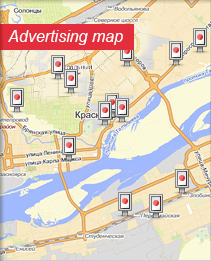|
Русский
|
|
|||
Consequences of Budget ReductionPaul Dyson, a founder of D2D Limited, an independent agency on modeling and analysis, held a series of researches proving that preservation of advertising budget during a crisis positively influence brands of such companies.
A series of such research works also emphasizes that this effect manifesting itself in growth of competitiveness of such companies remains on force for minimum 1-2 years after the end of recession.
Long-Lasting Effect of AdvertisingUnfortunately, there is no unified method of direct calculation of a long-lasting effect of advertising. Most assessments of short-term return on investments into advertising amount to about 50% (according to series of purchase cycles), but long-term return on investments (from one to four years) usually considerably exceeds this value.
After budget reduction a brand, in fact, exists at the expense of investments into advertising and marketing of the previous years. It does not have adverse effect on business in a short-term perspective and even improves current profitability of the company. A delayed adverse effect influences even more seriously, but manifests itself later. According to a diagram below, in case short-term and long-term advertising effects are put together, total advertising effect increases 3-4-fold. It means that a long-term advertising effect and its time duration considerably define sales not only during a crisis, but also for some time after its ending. To demonstrate this effect, the diagram below shows sales from advertising in three different cases:
In the last two cases Paul Dyson admits that budgets of the brands will return to a previous level in a year after reduction.
A dash line on the schedule shows influence on sales, directly related to company’s decision to terminate all advertising for a year. When the company will return to the previous budget, it will take it three or four years to reach the level of brand sales that could have been achieved in case its advertising budget had been preserved.
In other words, it can be said that in case of reduction of advertising expenses during a crisis, you will have to considerably increase these expenses later in order to quickly return to a pre-crises sales level. The point is that this diagram, for example, demonstrates that the required increase of expenses on recovery of a pre-crisis sales level exceeded the sum saved by the company in case of budget reduction during a crisis by 60%. Therewith, it is possible that the consumers they lost will “suddenly” return. From the point of view of financial result, the only excuse for advertising budget reduction during a crisis can be an acute need in funds allocated earlier for advertising purposes. In other case, cake is not worth the candle.
Source: http://www.akarussia.ru/ Recommendations of the European Association of Communications Agencies With the assistance of the World Advertising Research Center A trial version is available on the WARC website: http://www.warc.com/trial |
||||
|
© «Orientir-M»
660111, Krasnoyarsk, st. Pogranichnikov,
44 bld.2 Tel.: 8 (391) 236-10-11, 269-59-09, 274-59-90, 269-54-02 Fax: 8 (391) 236-47-05 e-mail: o-men@orientir-m.ru |
||||

Orientir-M. Advertising in Krasnoyarsk.
Phone: (391) 236-10-11, 236-47-05, 269-59-09, 269-56-09
Addres: 660111, Krasnoyarsk, st. Pogranichnikov, 44 bld. 2




